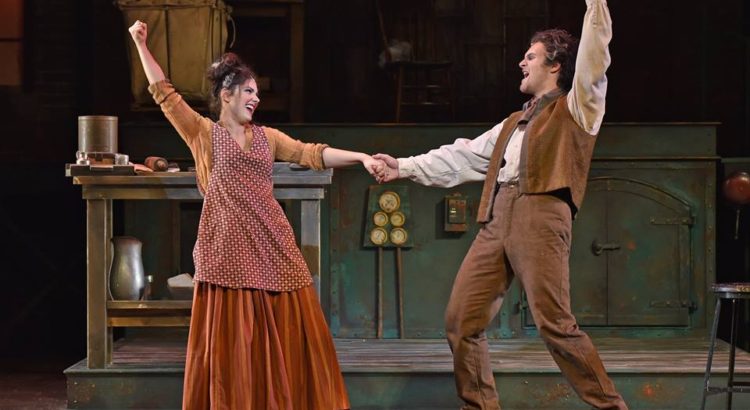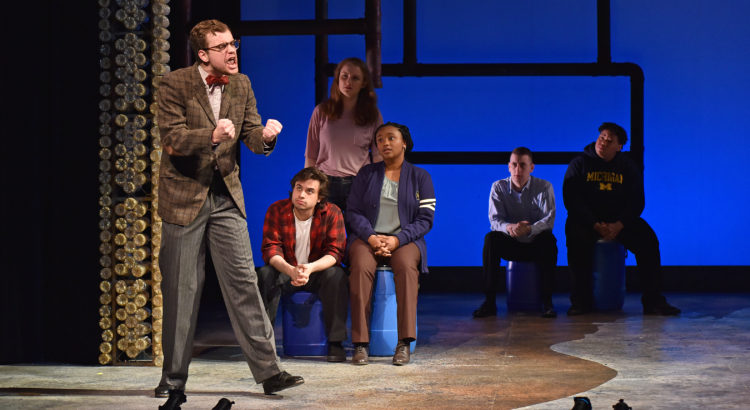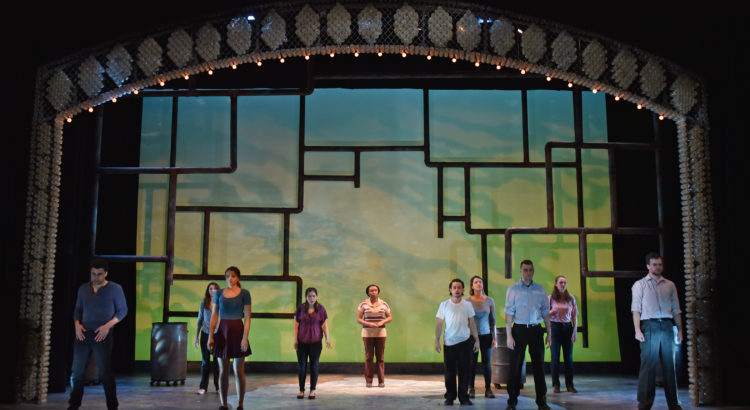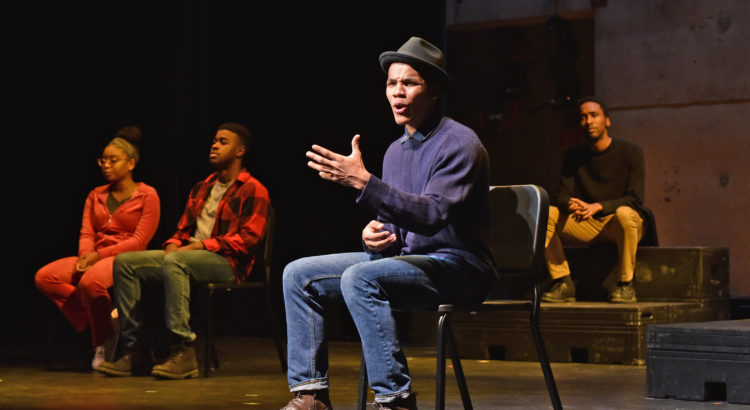As a tried and true fan of Jane Austen, I was thrilled to find out SMTD’s first theatre production of the year would be the famous Sense & Sensibility. I resonate with Austen’s work because there’s realness and rawness to her characters beneath layers of social conventions and eighteenth century polity. Beneath the postured spines seated on cushioned dinner chairs, beneath the kind and ordinary curtsy of a bonnet-clad woman, beneath the pleasant laughter, the polite greetings, the performative manners, there is a precisely calculated diplomacy. Austen knows how to make a domestic novel scintillate with political and social meaning– she knows how to write a powerful and flawed woman grapple with a society entrenched in performativity.
My roommate, who is currently taking a class on Jane Austen, accompanied me to the play (or I accompanied them– it was an assignment on their part). I wasn’t familiar with the book, though I’ve heard it’s slightly less compelling than Pride & Prejudice, which I believe is difficult to surpass in mastery and drama as it is. Thus, there was an innocent blankness to my viewing the performance, which I sometimes prefer to an oversatured understanding of context and previous adaptations (re: my review on The Goldfinch here can explain how my loving a book too much ruined the movie).
The performance opened a few minutes before the lights officially went down; the characters started dressing on stage, men and women together, chitchatting, gossipping, fixing each other’s hair, playing cards, tossing a birdie around. It felt extraordinarily Brechtian, the show before the show, the actors initially as equals to the audience. Then– the lights went low and a Black-Eyed Peas started playing! Our characters, clad fully in regency-era attire, began a coordinated hip-hip-ish dance routine, danced while they brought the dead Mr. Dashwood in his shroud to the stage. Lights down; the gossips starts speaking heatedly about the Dashwoods’ newfound poverty, and thus begins the play.
The story follows reserved Eleanor Dashwood and her emotionally eccentric sister, Marianne Dashwood, through a marriage plot. The Dashwood family are now poor and trying to stay reputable after the death of Mr. Dashwood. Their marriages must be well-calculated. Initially, both girls have men of interest, but as the plot goes on, these relationships slowly reveal prior commitments, betrayal, and heartbreak. Though the story finally ends on a happy note, we are taken through an emotional ride between two sisters: one who is unnaturally stoic, and another who has unrestrained melodrama, pitching us between the highs and lows of love and romance in a constrained and classist society.
I truly loved this play. Some of the creative liberties they took were marvellous as well as comical: the gossips impersonating animals (one had acting like a horse down to a T!), some of the lines stressed just perfectly, and a few of the most mundane moments were the ones I remember most: the surreal moment were music started playing when the dashing Willoughby walks into the room in classic rom-com style, when Eleanor and Marianne’s beds were propped up standing up to face the audience– all of these essentially get at the whimsy and wit in Austen’s world. Set against a beautiful pastel stage that immersed me in the blush-toned hues of rolling countrysides and polished China, pink berets and umpire waistlines, I felt transported and enchanted. SMTD has never failed me in one of their performances, but this was a treat to watch. As an avid Austen fan, this was perhaps one of my favorite renditions of her work.






